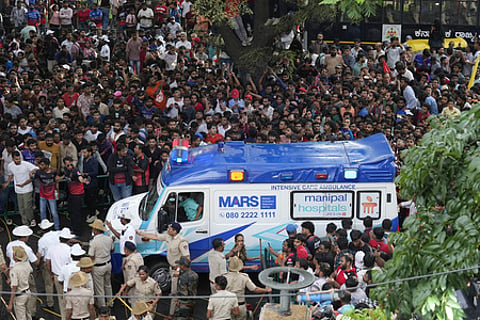

BENGALURU: What unfolded outside M Chinnaswamy Stadium on June 4 was not just a failure of crowd control, but an example of how, in emotionally charged situations, people often act less on logic and more on instinct.
“When people hear about an event like RCB’s victory celebration, their minds immediately jump to the mixed feelings of missing out - not just on the event, but more on the social media buzz around it,” Pratibha Narender, psychologist and counsellor at Trilife Hospital, explained. Nowadays, it’s not just about watching the game or the celebration, it’s about proving to their friends and followers that they were there, she said.
It creates a powerful urge to rush, even if one does not fully understand the situation. “Crowd itself becomes a signal - if everyone else is going, it must be important, so others join, which gives a feeling that they have achieved something big in their lives,” she added.
Dr N Vyjayanthi Venkataramu, Consultant Psychiatrist, Ramaiah Memorial Hospital, said an event that “seems” like a once in a lifetime opportunity instills an immense fear of losing something you value.
“When people believe that access to an event or tickets is limited, their brain switches into a survival mode, triggering a fight-or-flight response. This makes people more willing to take physical risks. So even when safety warnings are given or risks are visible, many may ignore them because the mental pain of missing the event seems worse. This causes adrenaline to spike, making individuals more impulsive and less able to pause or think. This leads to mass panic,” she explained.
She pointed to the power of social proof and mass panic, where people look to others to determine what’s appropriate behaviour. “If a few individuals start rushing towards a gate, others instinctively join in, assuming there’s a good reason for it. This is a combination of animalistic instincts and automatic imitation.
This automatic imitation helps explain why small actions by a few can quickly escalate into large-scale crowd movement. This in combination with many other factors like mismanagement, poor preparation to handle crowds, physical overcrowding and its effects and the physics of mass movement eventually leading to a disaster,” Dr Vyjayanthi explained.